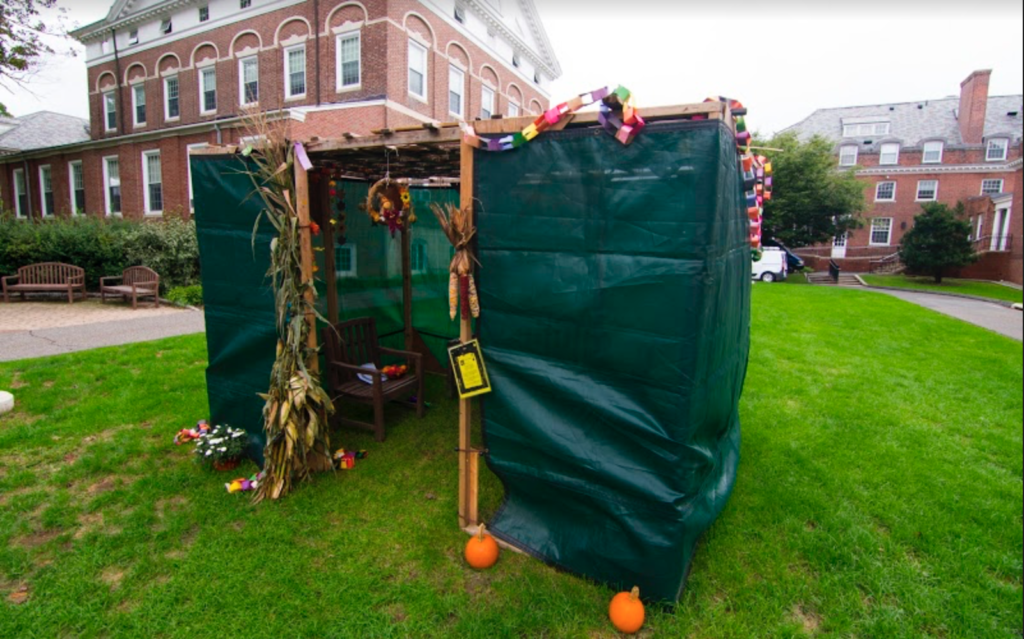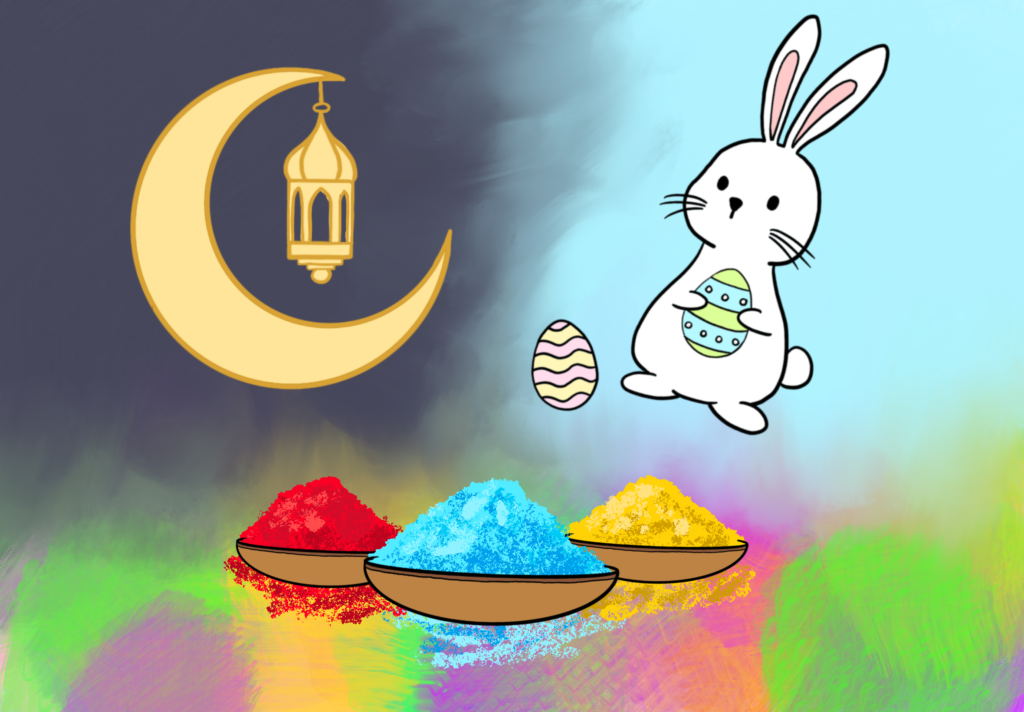
The Sukkah is one way Choate connects Jewish members of the Community to their religion. Photo by Brent Valentine/The Choate News
September brings with it the kick-off to the school year, the beginning of autumn, and the start of the Jewish High Holidays. The two largest holidays of the year in Judaism occur within ten days of each other each year, with Rosh Hashanah stretching from sundown on September 9 to sundown on September 11 and Yom Kippur taking place from sundown on September 18 to sundown the next day this year. Rosh Hashanah is the Jewish New Year and directly translates to “Head of the year.” A week after Rosh Hashanah is Yom Kippur, the day of atonement and the holiest day of the year in Judaism.
At Choate, the holiday services are organized by Choate’s Rabbi Barbara Paris, with the help of Hillel, the Jewish organization on campus. For Rosh Hashanah, the group organized a dinner that featured the traditional Rosh Hashanah foods of apples and honey. On the significance of these two foods, Rabbi Paris said, “The apple signifies the start of a new year as well as the time of harvest; the honey represents the sweetness to wish everyone a sweet new year.”
Following the dinner, the group had a service in the chapel where the traditional shofar, the blowing of a ram’s horn, was performed. Rabbi Barbara explained, “The shofar is meant to be a wakeup call to the people for them to reflect on the year that’s passed and their relationship with others.” Hillel officer Stella Dubin ’21 felt the event was a great way to begin the year. She said, “Before our abbreviated Torah service, we had a very nice meal that a good amount of people came to. At the service itself, there was a lot of student participation which was lovely. It was a good start of the year.”
The coalition also managed services for Yom Kippur, which Rabbi Barbara described as “a more serious day of true reflection and true repentance.” The day involves fasting for all adult members of the Jewish community, unless they are sick or otherwise unable. Interestingly, leather items are also prohibited, as observers want to distance themselves from the killing of animals. There is a belief the Book of Life, opened on Rosh Hashanah and sealed on Yom Kippur, where Jewish people ask for a good inscription for the following year. The group did not have services on Yom Kippur but had an event the evening before called Kol Nidre. “The Kol Nidre is actually a musical piece,” stated Rabbi Barbara. “We were lucky to have Caroline Saltzman ’19 play it for us on the cello at the event.” The service helped set the solemn mood for Yom Kippur the next day, preparing the attendees for the day of atonement.
Another event was the construction of the Sukkah, located between the Andrew Mellon Library and Hill House. The Sukkah is a piece of the Jewish holiday Sukkot, which is not one of the high holidays but occurs around the same time. The Sukkah is a temporary structure meant to be a reminder for Jewish people of the time their ancestors spent wandering in the deserts of Egypt. The Sukkah contains a laminated description of this time, and Rabbi Barbara strongly encourages people to go inside to learn more about the culture. India Lacey ’21 said, “The Jewish community at Choate is a very small, tight-knit group, and although the services are not like the large synagogues many of us come from, they are personal and very special to many of us spiritually.”


